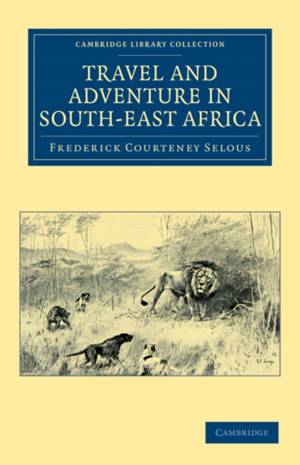
- Afhalen na 1 uur in een winkel met voorraad
- Gratis thuislevering in België vanaf € 30
- Ruim aanbod met 7 miljoen producten
- Afhalen na 1 uur in een winkel met voorraad
- Gratis thuislevering in België vanaf € 30
- Ruim aanbod met 7 miljoen producten
Zoeken
Travel and Adventure in South-East Africa
Frederick Courteney Selous
€ 112,95
+ 225 punten
Uitvoering
Omschrijving
Frederick Courteney Selous (1851-1917) was a British explorer, officer, hunter, and conservationist, famous for his work in south-east Africa. In early 1882 he embarked on an eleven-year expedition to record species that, to his great sadness, were becoming endangered. First published in 1893, these revealing memoirs document the wildlife, landscapes and people that characterised his journey. Through vivid descriptions and extensive illustrations, he recalls exhilarating adventures with lions, leopards, hyenas and crocodiles, recounts challenging treks across lakes and mountains, and describes hostile - and at times barbaric - encounters with native peoples. Detailed accounts of hunting endeavours, colonial institutions, and commercial enterprises such as gold mining, also feature in this study, which provides a unique and diverse perspective on Africa in the late nineteenth century. Insightful and revealing, Selous' experiences remain of enduring interest to geographers, anthropologists, zoologists, and all those interested in African history and culture.
Specificaties
Betrokkenen
- Auteur(s):
- Uitgeverij:
Inhoud
- Aantal bladzijden:
- 532
- Taal:
- Engels
- Reeks:
Eigenschappen
- Productcode (EAN):
- 9781108031165
- Verschijningsdatum:
- 19/05/2011
- Uitvoering:
- Paperback
- Formaat:
- Trade paperback (VS)
- Afmetingen:
- 140 mm x 216 mm
- Gewicht:
- 666 g

Alleen bij Standaard Boekhandel
+ 225 punten op je klantenkaart van Standaard Boekhandel
Beoordelingen
We publiceren alleen reviews die voldoen aan de voorwaarden voor reviews. Bekijk onze voorwaarden voor reviews.











